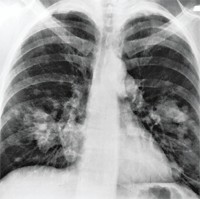Advertisement
Grab your lab coat. Let's get started
Welcome!
Welcome!
Create an account below to get 6 C&EN articles per month, receive newsletters and more - all free.
It seems this is your first time logging in online. Please enter the following information to continue.
As an ACS member you automatically get access to this site. All we need is few more details to create your reading experience.
Not you? Sign in with a different account.
Not you? Sign in with a different account.
ERROR 1
ERROR 1
ERROR 2
ERROR 2
ERROR 2
ERROR 2
ERROR 2
Password and Confirm password must match.
If you have an ACS member number, please enter it here so we can link this account to your membership. (optional)
ERROR 2
ACS values your privacy. By submitting your information, you are gaining access to C&EN and subscribing to our weekly newsletter. We use the information you provide to make your reading experience better, and we will never sell your data to third party members.
Biological Chemistry
Major Research Centers Launch Efforts In Personalized Medicine
by Rick Mullin
February 11, 2008
| A version of this story appeared in
Volume 86, Issue 6
COVER STORY
Major Research Centers Launch Efforts In Personalized Medicine
As drug discovery scientists shift their focus to the molecular characterization of disease, two major cancer research institutes are gearing up with new facilities dedicated to such personalized medicine. Both the Center for Molecular Oncologic Pathology (CMOP), a joint venture of Dana-Farber Cancer Institute and Brigham & Women's Hospital, and the Center for Targeted Therapy (CTT) at the University of Texas M. D. Anderson Cancer Center will channel their resources and long-standing traditions into a focused investigation of the biology of cancer.
The purpose of CTT, according to its director, Garth Powis, who chairs the department of experimental therapies at M. D. Anderson, is to corral all stages of the drug discovery and development process in the design of targeted therapies. M. D. Anderson broke ground on the $95 million center last year.
Powis says successful biological characterization of disease will require a more collaborative approach to medicine. It will also require new tools, especially imaging systems, to advance the development of diagnostic biomarkers.
"Only with the advent of molecularly targeted agents do you have any degree of confidence that you are inhibiting at least one major disease target and maybe some minor targets," Powis says. "The idea is that we all need to work together, because if you are going to do personalized medicine, you have to have biomarkers and the ability to know what tumor the patient has. And probably the best way to do that is to integrate imaging into drug development. The goal is to achieve personalized medicine."
CMOP is taking a similar approach, according to Massimo F. Loda, director of the center. Its goal, he says, is to apply novel biomolecular diagnostic techniques to human tissue in the development of targeted therapies.
The venture brings the partners into a fundamentally new era in cancer research, Loda says. "Personalized medicine is new for the simple reason that for decades we have classified tumors according to what they look like. And we are good at it," he says. "Now we can identify the genetics of the composition of the tumor. We can precisely target mutations with the kind of certainty that if we were able to identify all mutations in all tumors in real time—which we will in a few years—we would be able to devise individual therapies."
Another goal of the center, Loda says, is to develop tests for clinical trials that will be adopted as standards of care.
According to Powis, partnerships between research organizations will be important to developing diagnostic techniques and evolving standards for clinical trials in what he characterizes as the very early days for personalized medicine. "Personalized medicine has had very little impact as yet on clinical trials and health care in general," Powis acknowledges. "Most oncologists are not doing this kind of research, and most patients are not treated in institutions like M. D. Anderson."






Join the conversation
Contact the reporter
Submit a Letter to the Editor for publication
Engage with us on Twitter